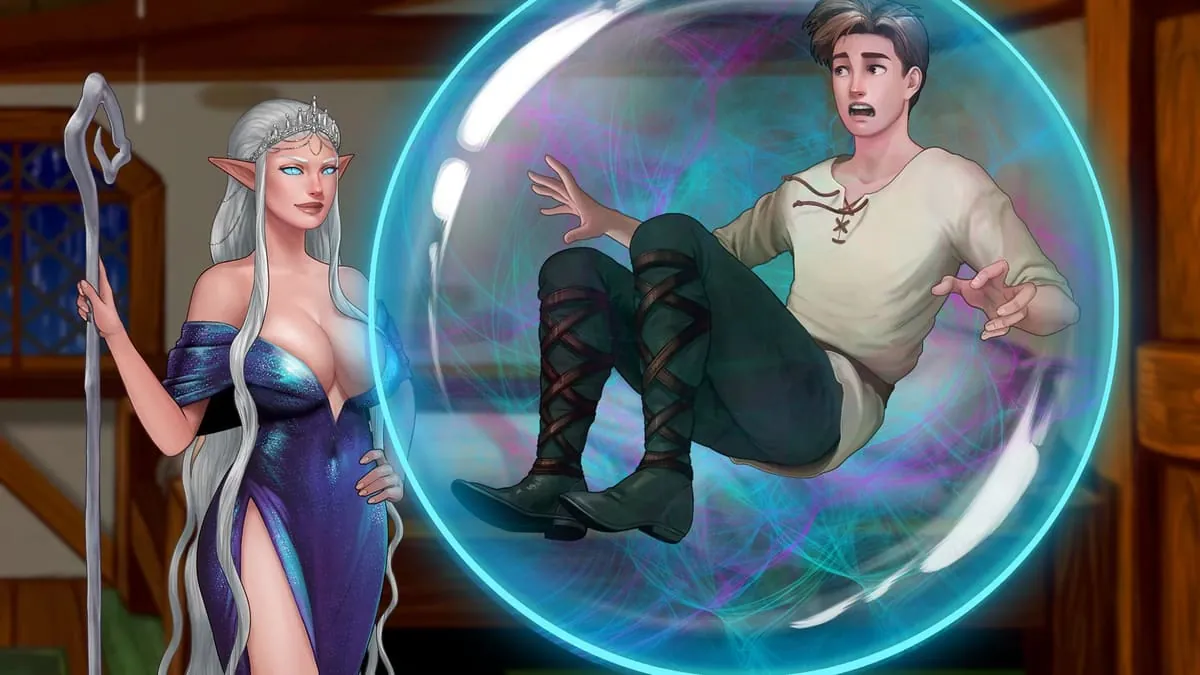
Strange Nights
Play Strange Nights
Strange Nights review
Discover the unique features, gameplay, and community buzz around Strange Nights
If you’ve stumbled upon ‘Strange Nights’ and are curious about what this game offers, you’re not alone. This title has sparked conversations for its bold approach to storytelling and interactive elements, blending school life drama with mature themes. In this deep dive, we’ll explore everything from its narrative structure and character dynamics to gameplay mechanics and player feedback. Whether you’re a newcomer or a seasoned gamer, this guide will help you understand why ‘Strange Nights’ stands out in a crowded genre—and whether it’s the right fit for your playstyle.
What Is Strange Nights? Exploring the Game’s Core Concept
Picture this: you’re navigating the crowded hallways of a high school, but the usual drama of pop quizzes and who-likes-who is just the surface. Underneath it all, there’s something darker, more complex, and deeply personal unfolding. That’s the immediate, gripping hook of the Strange Nights game. It presents itself as a familiar school life game, but quickly subverts all your expectations by weaving in mature themes that are rarely explored with such depth in the genre. 🏫✨
I remember firing it up for the first time, expecting a light-hearted visual novel, and within the first hour, I was completely engrossed in a moral dilemma that had no easy answer. This isn’t your typical high school simulator; it’s a raw, emotional journey where your conscience is your primary controller.
### Setting and Storyline: A School Life With a Twist
The setting of the Strange Nights game is its first masterstroke. On the surface, Northgate Academy looks like any other prestigious high school—neat rows of lockers, sun-drenched courtyards, and the constant buzz of student life. But as night falls, the atmosphere shifts. The same hallways that felt mundane by day become stages for clandestine meetings and conversations that carry the weight of the world. 🌙🔍
The storyline kicks off with your character transferring to Northgate, seeking a fresh start. But a fresh start is the last thing you’ll get. You’re quickly pulled into a web of interconnected stories involving your new classmates, each grappling with their own profound struggles. We’re talking about themes of identity, loss, societal pressure, and the difficult transition into adulthood. This is what firmly plants it in the mature themes game category. It handles these heavy topics with a surprising grace, never feeling exploitative but always feeling honest.
The brilliance of the interactive storytelling here is how the school environment acts as a pressure cooker. Every location—from the quiet library to the bustling cafeteria—holds potential for a story-altering moment. I had one playthrough where a simple decision to skip a class and hang out by the old gym completely altered my relationship with two main characters, locking me out of a storyline I didn’t even know existed.
### Character Dynamics and Relationships
If the setting is the stage, then the characters are the undeniable heart of the Strange Nights game. This isn’t a cast of archetypes; they feel like real, flawed, and beautifully complicated people. The development of character relationships is the core driver of the entire experience. Your choices directly influence whether you become someone’s confidant, rival, or a person they simply learn to ignore. 💖🤝
You might find yourself trying to break through the cynical exterior of a gifted artist who uses sarcasm as a shield, or carefully supporting a classmate who is struggling with immense family expectations. There are no purely “good” or “evil” choices here—only human ones, with realistic consequences. I formed a deep bond with one character, only to have it shattered later because of a seemingly minor, careless comment I made hours earlier in the game. The game remembers everything.
To help you get acquainted with the key figures you’ll meet at Northgate Academy, here’s a breakdown of the main cast:
| Character | Personality | Role in the Story |
|---|---|---|
| Alex | The cynical and observant artist; deeply empathetic but guarded. | Often serves as the moral compass, challenging the player’s decisions and revealing hidden truths about the school. |
| Maya | The ambitious student council president; appears perfect but is buckling under pressure. | Represents the theme of societal expectations and the cost of success; her route explores the price of perfection. |
| Leo | The quiet and reliable library assistant; has a sharp wit and a mysterious past. | Acts as an information broker and a source of stability; his storyline delves into themes of memory and regret. |
| Riley | The impulsive and passionate activist; wears their heart on their sleeve. | Drives plots involving social justice and rebellion; their route forces the player to take a stand on contentious issues. |
Navigating these character relationships is a delicate dance. You can’t be everyone’s friend, and trying to do so will almost certainly backfire, making the world feel incredibly authentic and responsive.
### Gameplay Mechanics and Interactive Choices
At its core, the gameplay of this school life game is deceptively simple, but its implications are vast. You spend your days managing your time, choosing which locations to visit, and, most importantly, talking to people. The magic is in the conversation system. This is where the promise that player choices matter is delivered upon in spectacular fashion. 🎮💬
The dialogue wheel doesn’t offer generic “good, neutral, bad” responses. Instead, you choose from tones, attitudes, and specific points of inquiry. Do you respond to a character’s vulnerability with empathy, with pragmatic advice, or with a deflection into humor? Each option feels true to a possible human reaction, and each sends your story down a different path. The branching narrative is so intricate that my first two playthroughs felt like completely different games, with characters I thought were friends becoming distant acquaintances, and background figures stepping into the spotlight.
Pro Tip: Don’t savescum! The most powerful moments in Strange Nights come from living with your mistakes and seeing how the story adapts. The consequences are the point.
Let’s look at a concrete example of how a single choice can ripple outwards. Imagine a scenario where Maya confides in you that she’s considering a drastic action to secure a scholarship.
The Choice:
* “You should do whatever it takes to win.” (Ambitious)
* “Is this really what you want?” (Questioning)
* “There has to be another way. Let me help you.” (Supportive)
Potential Outcomes:
The “Ambitious” choice might strengthen your bond with her initially and unlock a cutthroat storyline about climbing the social ladder, but it could permanently damage your relationship with the more idealistic Riley. The “Supportive” route might lead to a difficult, multi-step side quest to find an alternative solution, strengthening your bond with multiple characters and revealing a hidden side of the school’s faculty. This is the interactive storytelling at its finest.
The branching narrative is supported by a robust “Relationship Map” in the menu screen, which visually charts your shifting alliances and rivalries. It’s a constant, compelling reminder of the web you’re weaving. Furthermore, the game’s visual style uses a muted, almost painterly aesthetic that can shift to sharper, more saturated colors during moments of high tension or emotion. The audio design is equally subtle and powerful, with a soundtrack that knows when to swell with emotion and when to fall into an uncomfortable silence, making you sit with your decisions.
Ultimately, the Strange Nights game stands out because it trusts you. It trusts you to handle its mature themes, trusts you to navigate its complex character relationships, and, most of all, it trusts that you will find your own path through its brilliantly designed branching narrative. It’s a powerful reminder that in the best interactive storytelling, the most compelling story is the one you help create yourself.
Strange Nights offers a distinctive blend of school life drama and mature storytelling, set apart by its emphasis on player choice and character relationships. While it may not be for everyone, those who enjoy interactive narratives with consequences will find plenty to explore. The game’s replayability and active community add to its appeal, making it a noteworthy title in its genre. If you’re curious about how your decisions can shape a story—and aren’t shy about mature themes—Strange Nights is worth a closer look. Dive in, make your choices, and see where the night takes you.





















